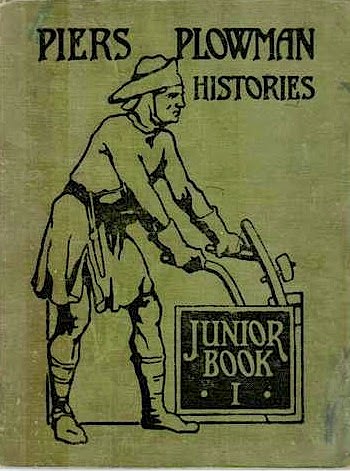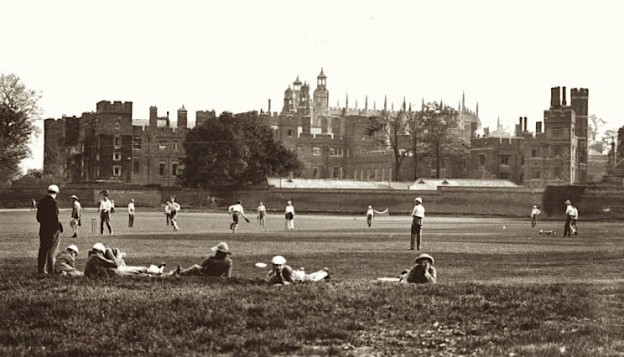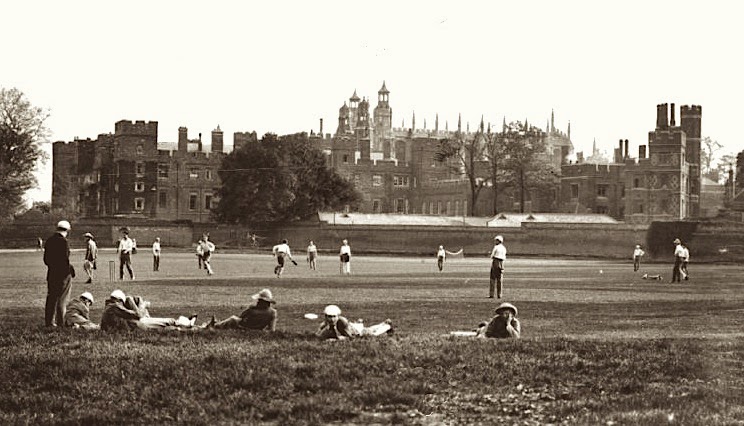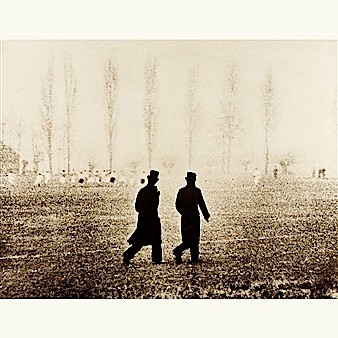From The Microcosm, a periodical work, by Gregory Griffin, of the College of Eton. (Windsor 1788) this piece about a real, or imagined, Loungers Club. The first 40 numbers of The Microcosm were published at Eton between 1786 and 1787. Among the subjects discussed are language, genius, poetics, novels, affectation, translation, imitation, government, genius, etc., 'Gregory Griffin' is the pseudonym of, inter alia, George Canning, Charles Ellis, Hookham Frere, and John and Robert Smith. Written by a group of friends it includes essays on the conduct of life and other cultural and philosophical topics, written as letters from pseudonymous or imaginary correspondents. One cataloguer notes that 'the journal attracted sufficient attention to induce the publisher, to pay the young editor fifty pounds for the copyright - in all probability the first copy money ever yet paid to a schoolboy.' This probably refers to the most illustrious of the bunch George Canning -his time at Eton has been described as "a triumph almost without parallel. He proved a brilliant classicist, came top of the school, and excelled at public orations".

DEAR GREG. You were in a plaguy hurry to fill up the vacant seat in the lounging club. I should have disputed the pretensions of Narcissus myself, and I am confident there is not a single member of our non-chalance society, but better deserved the distinction; - Hear, and judge for yourself. - You must know we are a firm CON, who regularly spend our Saturdays in recapitulating the business of the week, and the lucky rouge who proves himself to have done the least good, who has taken the most effectual pains to evade every purpose of his education, to affect indisposition with the greatest art, and loll away his hours with the most perfect indolence, is chosen PRESIDENT for the ensuing week; with many privileges that I may possibly acquaint you with hereafter. The immediate peals of applause that follow the promotion, would do your heart good, and has made me take more pains to arrive at the honour, than the closest attention to my education would have cost me.
I proved to the satisfaction of the whole society last Saturday, that all the races of my abilities, discoverable for the last week, were those before them on the chimney piece, from a hot poker. What shouts of applause! and I was actually hustled one foot into the chair, when an unlucky member discovered, that I had taken too much pains in burning the initial letters of my name, and that they remained an indelible proof against me. He sprang into the chair with the anonymous voice of the whole club, for it was proved in his favour, that in the whole course of the week he had done nothing, except indeed throwing a cravat into the fire, because it had been ill washed, and was not brought the moment he ordered it. There was exertion in this, added to some abuse he had given the servant, and voted to dispossess him; but it appeared, that his Tutor, with a mildness peculiar to himself, had taken great pains that very morning to convince him of his errors; that his idleness and extravagance deeply distressed an indulgent father; was ruin to the hopes of his whole family; and a melancholy waste of abilities that he might some time lament, but never have the power to retrieve. To this, and much more, dictated by virtue and friendship, he turned an ear...
Whether a loungers club actually existed or not or whether this is whimsy is anybody's guess. The description seems true; the paradox of the lounger (and idler) is that very little, or no effort must be put into it. 200 years later we have the excellent Idler magazine, which probably takes real work to keep going..
















